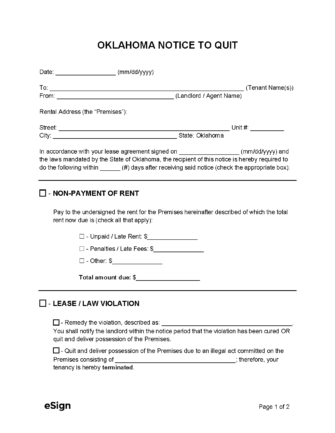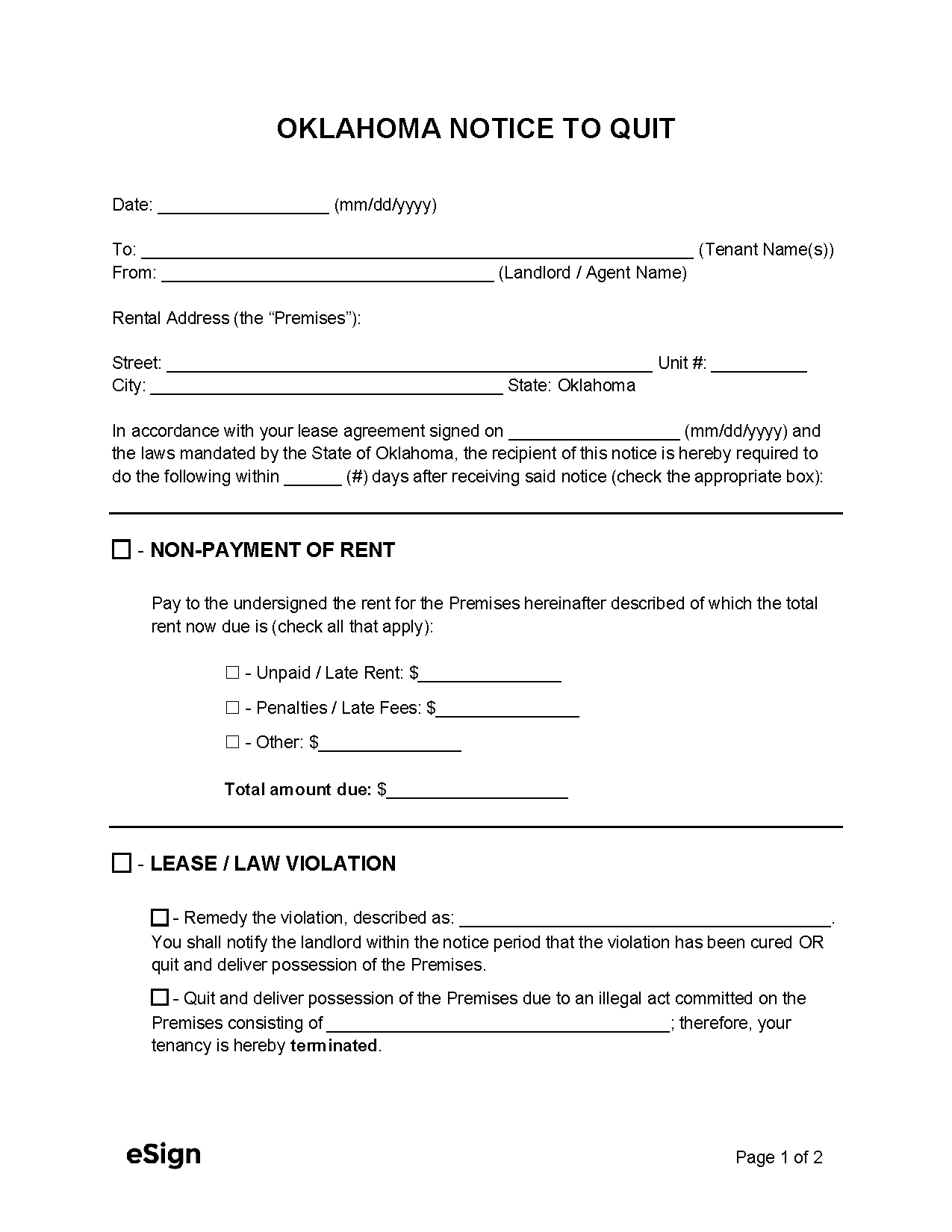Eviction Notices: By Type (5)
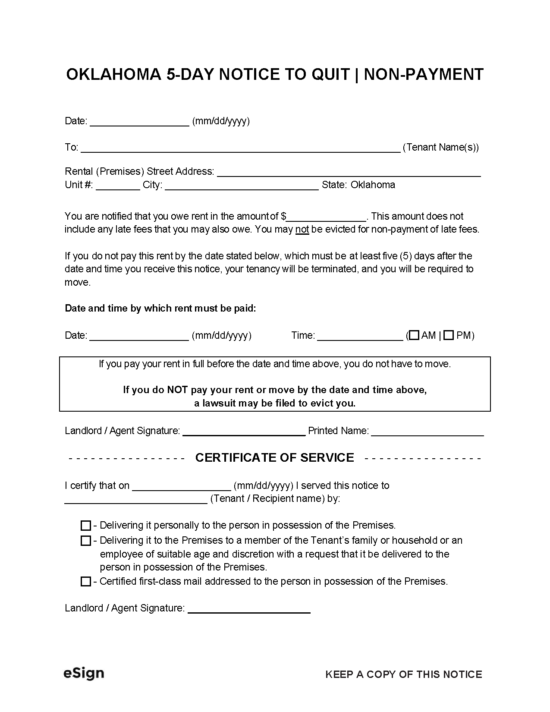 5-Day Notice to Quit | Non-Payment – Served on a tenant to notify them that they must pay their overdue rent or lose their tenancy. 5-Day Notice to Quit | Non-Payment – Served on a tenant to notify them that they must pay their overdue rent or lose their tenancy.
Download: PDF, Word (.docx), OpenDocument |
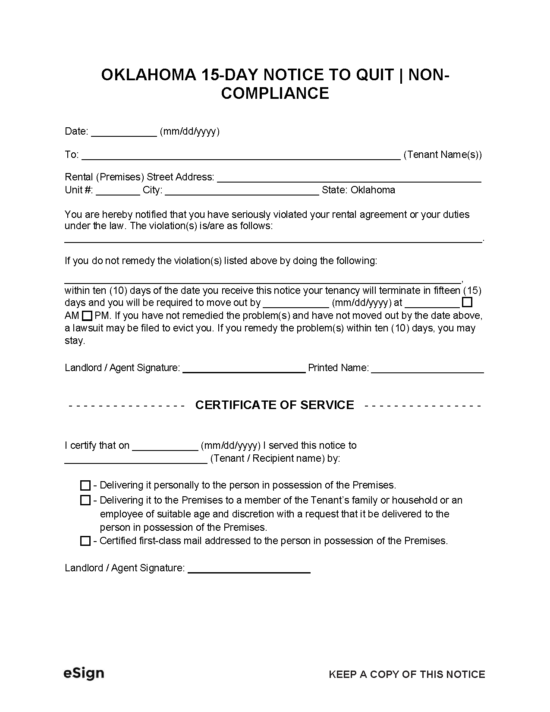 15-Day Notice to Quit | Non-Compliance – Requires that a tenant either cure a violation within 10 days or move out within 15 days. 15-Day Notice to Quit | Non-Compliance – Requires that a tenant either cure a violation within 10 days or move out within 15 days.
Download: PDF, Word (.docx), OpenDocument |
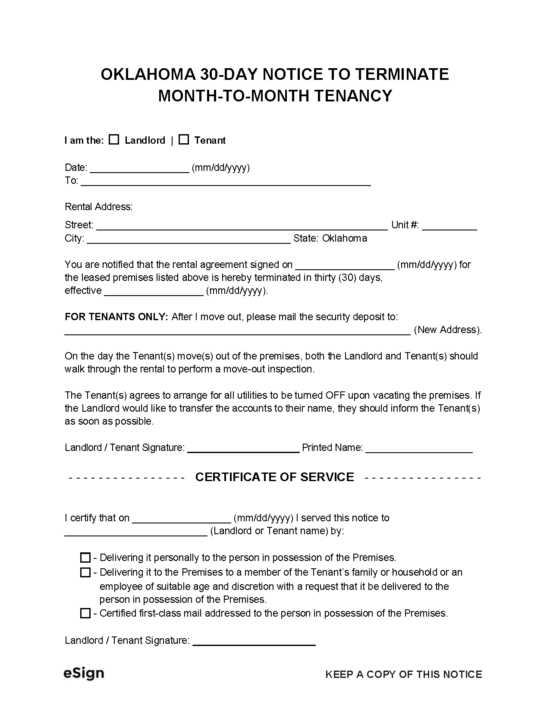 30-Day Notice to Terminate | Month-to-Month Tenancy – Used by landlords and tenants to give notice that they are terminating a month-to-month tenancy. 30-Day Notice to Terminate | Month-to-Month Tenancy – Used by landlords and tenants to give notice that they are terminating a month-to-month tenancy.
Download: PDF, Word (.docx), OpenDocument |
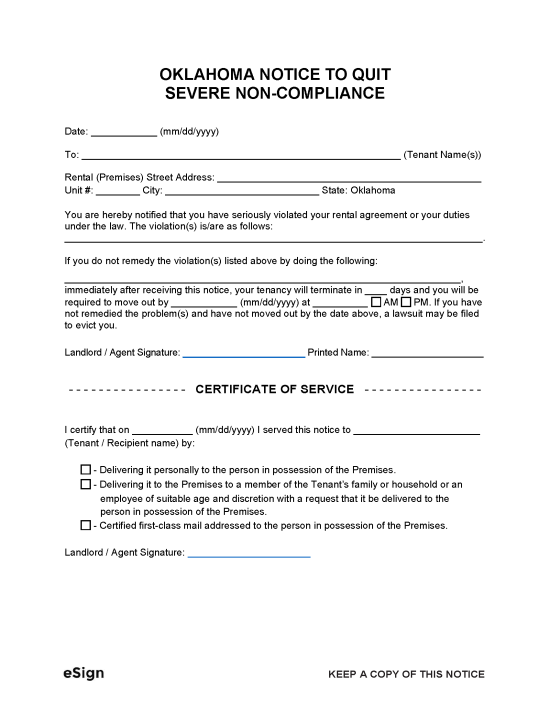 Notice to Quit | Severe Non-Compliance – Used to remove a tenant due to causing or threatening to cause harm to the property or others. Notice to Quit | Severe Non-Compliance – Used to remove a tenant due to causing or threatening to cause harm to the property or others.
Download: PDF, Word (.docx), OpenDocument |
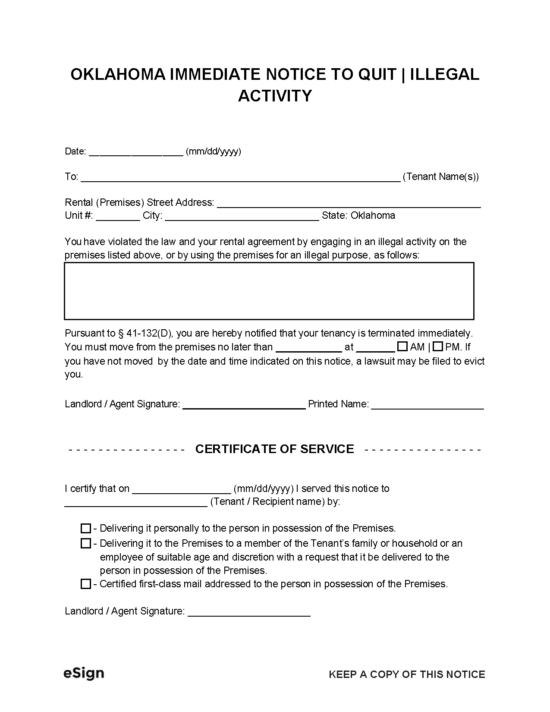 Immediate Notice to Quit | Illegal Activity – Informs a tenant that their lease has been terminated due to engaging in illegal activity on the property. Immediate Notice to Quit | Illegal Activity – Informs a tenant that their lease has been terminated due to engaging in illegal activity on the property.
Download: PDF, Word (.docx), OpenDocument |
Notice Requirements
How to Evict a Tenant in Oklahoma
Step 1 – Serve Notice to Quit
The eviction process begins with the landlord giving the tenant a notice to quit. They must try to hand the notice directly to the tenant or someone on the property who is at least 12 years old.
If in-person service fails, the notice may be posted on the premises and mailed to the tenant.
Step 2 – Obtain and Serve Summons
If the tenant doesn’t fix the problem and the notice expires, the landlord must obtain a Summons from the District Court by filing an Affidavit (fees apply). Other forms may be required so it’s recommended that landlords contact the court clerk for filing requirements.
The Summons must be served on the tenant (or another occupant over 15) at least 3 days before the hearing. If in-person service fails, the Summons can be mailed to the tenant with the return receipt postmarked at least three days before the hearing.
Step 3 – Attend Hearing
Before the landlord and tenant present their case before a judge, the parties may attempt to reach an agreement. If they’re unable to settle, a judge will evaluate the case and issue a decision.
If the ruling favors the landlord, the judge will issue an order for possession and/or a money judgment, ordering the tenant to vacate and, in some cases, pay back rent and damages.
Step 4 – Writ of Execution
If the tenant does not vacate by the time ordered by the judge, the landlord may request a Writ of Execution from the court, giving the tenant 48 hours to vacate.
The landlord or sheriff can deliver the Writ directly to the tenant (or another occupant at least 15 years old), or if in-person service is unsuccessful, it can be posted on the premises. If the tenant does not comply within 48 hours, the sheriff will return to remove them from the property.
Court Forms + Resources
Forms
- Affidavit
- Signed by: Landlord
- Summons
- Signed by: Judge
- Writ of Execution
- Signed by: Judge
Resources
